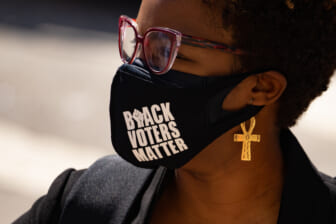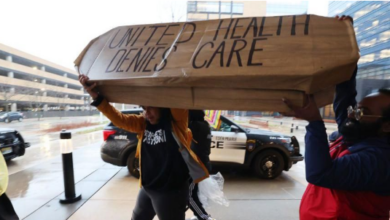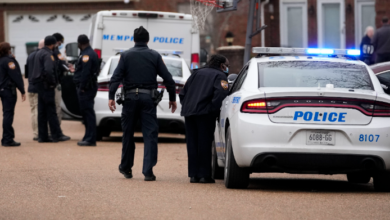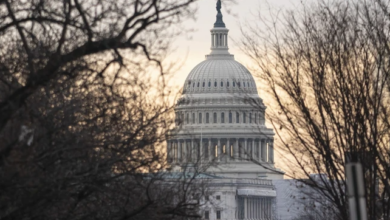As Republicans still scream fraud in 2020 election, Black voters surveyed by theGrio/KFF still believe their votes count


Editor’s note: The following article is an op-ed, and the views expressed are the author’s own. Read more opinions on theGrio.
“The Big Lie” continues to dominate the conversation about American politics. Republican officials and many GOP candidates running for office this midterm continue to assert that the election was stolen, and you know that in time, they’ll use their sense of grievance and victimhood to justify anything they want to do.
While many white Republican voters are screaming that the 2020 election wasn’t counted properly, Black voters remain confident that when they go to the polls, their votes will count. A new theGrio/KFF survey found that 84% of Black voters believe their vote will be accurately counted in this November’s midterm election. Even among Black Republicans and Republican-leaning independents, 80% think their votes will be tallied honestly. This is a testament to people’s faith in American democracy, but the sentiment stands in opposition to the experience many Black people are having while voting.
How confident are you that your vote will be accurately counted in this November’s midterm election?

Seventy-one percent of Black voters said they were worried about voter suppression and 45% are concerned about voter fraud interfering with a fair and accurate election in their state. Many Democrats may be aware of the many court cases where judges concluded that Republicans have passed laws for the purpose of suppressing Black voters. People who have closely studied this issue have repeatedly concluded that vote suppression is a far larger problem in America than vote fraud. While there is very little evidence of in-person voter fraud in America, many Republican leaders have pushed the notion that there is major voting fraud to help them push laws that will curtail the voting rights of others, which is pretty despicable, but this is the Republican Party we have now.
Also, many Black voters say they’ve been a victim of voter suppression tactics. Twenty percent of Black voters said they had experienced at least one form of the voter suppression tactics asked about in the poll. This includes 12% who said they’ve had their voter registration questioned, or told they were not registered to vote, and 11% who said they requested a mail-in ballot that arrived after the election or not at all.
Have you ever had to wait in long lines at your polling place?

In addition, 46% of Black voters said that they have experienced long lines to vote. Long lines are not accidental. The lines are not evidence that there’s an increased number of people who want to vote. Long lines are the result of decreasing the number of polling places in a given area or slashing the number of polling workers at a certain location, all to make the voting process difficult and time-consuming, making people less likely to vote. It’s suppression in another form.
This election could be even more controversial because in 19 Republican-controlled states there are a slew of laws enacted in 2021 that are aimed at making voting harder — these laws shorten the time to apply for a mail ballot, increase voter ID requirements, reduce polling locations, make it easier to be purged from voter rolls and more. Meanwhile, several Democratic-controlled states have worked to make voting easier.
The new laws in enacted by Republicans are meant to disenfranchise specific people. Wendy Weiser, the vice president of the Democracy Program at the Brennan Center told NBC News, “A lot of these voting restrictions make it harder just for a subset of the electorate to vote — and that tends to disproportionately be voters of color.”
It’s fascinating that despite so much experience with voter suppression, and so much worry about it, the majority of Black voters still believe their votes will be counted. Many Black people have the right to be cynical about politics and government, given the number of times the American government has lied to us, gaslit us and deliberately undermined our people.
I don’t look at this and think Black people are gullible. We’re not. I think that America has done a great job at selling its integrity, the sanctimoniousness of its democracy and its global supremacy, which rests in part on the supposed fairness of its voting system. America is the best-marketed product in the world, and part of the evidence of that is that despite the many ways Republicans are trying to suppress votes and so many white Americans screaming that their votes were suppressed, most Black Americans still believe in the purity and the efficacy of the American voting system. And the fact is, they’re right to do so.
There is no significant evidence that votes have been improperly counted or cast. It’s reasonable to believe that when you vote, it will be counted. Even though Republicans are trying to make it harder for Black folks to vote, we can still believe that when we vote, it will matter.
About the Survey
The Survey of Black Voters is the first partnership survey between theGrio and KFF, a nonprofit organization focused on research and analysis of health and other national issues. Teams from KFF and theGrio worked together to develop the questionnaire and analyze the data, and both organizations contributed financing for the survey. Each organization is solely responsible for its content.
The survey was conducted Aug. 24–Sept. 5 with a nationally representative, probability-based sample of 1,000 adults who identify as Black or African American and are registered to vote. The sample includes all voters who identify as Black or African American, including those who also identify as Hispanic or multi-racial. The sampling design includes Black registered voters reached online through the SSRS Opinion Panel and the Ipsos KnowledgePanel; to reach Black voters who do not use the internet, additional interviews were conducted by calling back respondents who previously participated in an SSRS Omnibus poll and identified as Black and said they did not use the internet. The combined telephone and panel samples were weighted to match the sample’s demographics to the national U.S. population of Black voters using data from the Census Bureau’s 2020 Current Population Survey (CPS) Voting and Registration supplement. Sampling, data collection, weighting and tabulation were managed by SSRS of Glen Mills, Pennsylvania, in close collaboration with KFF researchers.
The results have a margin of sampling error of plus or minus 4 percentage points for results based on the full sample of Black voters. The full methodology and question-wording are available here.
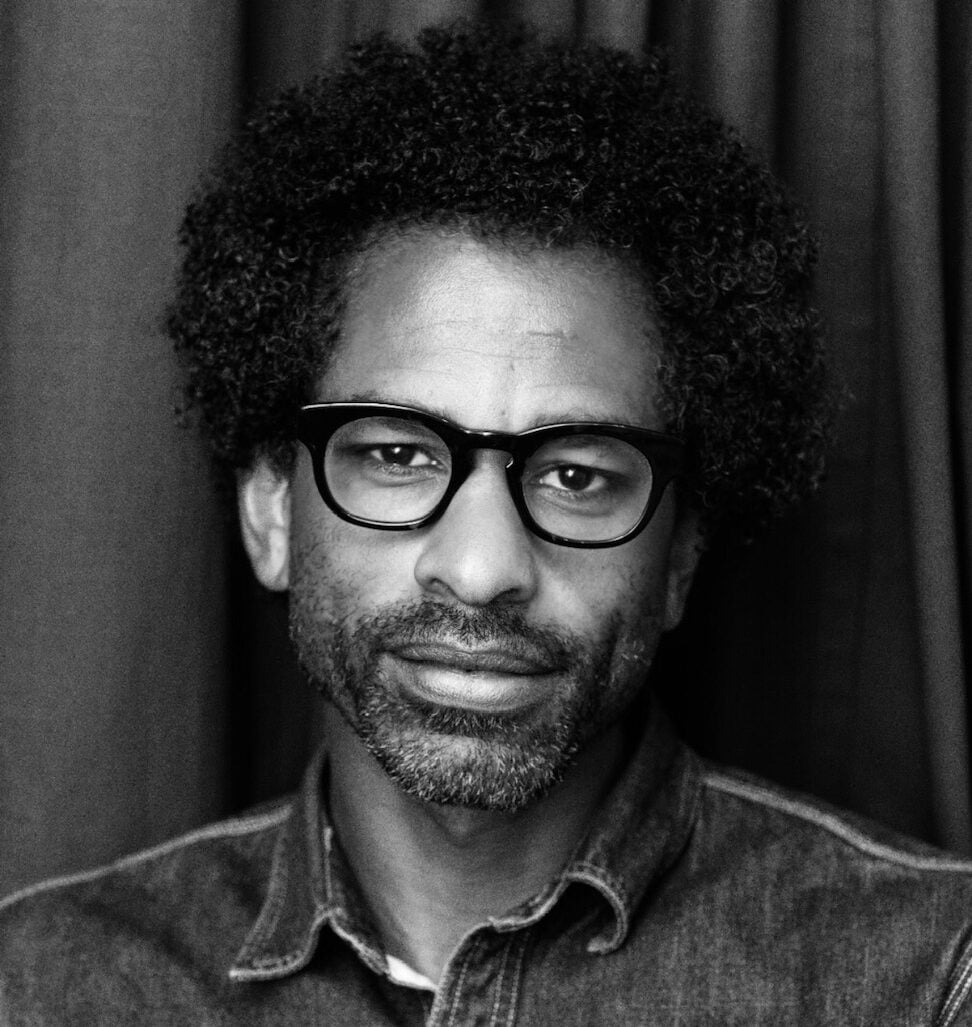
Touré is the host of the podcast “Toure Show” and the podcast docuseries “Who Was Prince?” He is also the author of seven books.
TheGrio is FREE on your TV via Apple TV, Amazon Fire, Roku and Android TV. Also, please download theGrio mobile apps today!
[ad_2]
Source link



